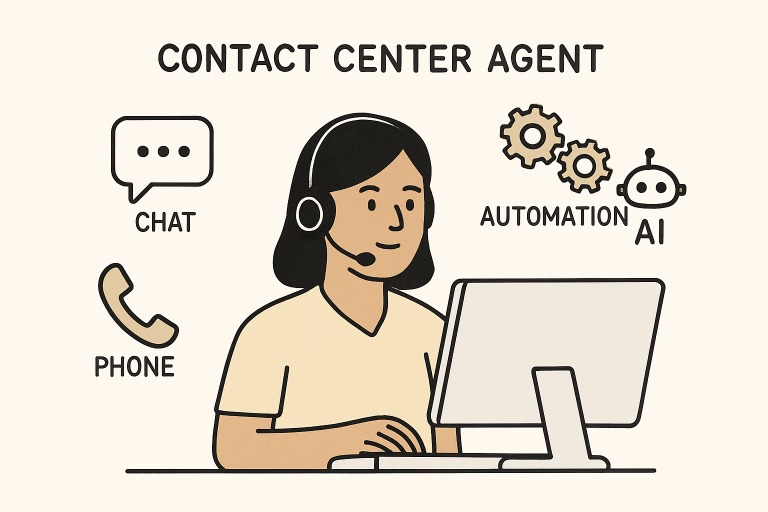Rising Customer Expectations and the Role of AI
AI adoption in customer service is a necessity due to rising customer demands. A 2023 Forbes analysis shows that over 70% of customers expect real-time support, highlighting the need for AI-driven solutions. AI-enabled contact centers analyze data, learn from interactions, and improve continuously, enhancing customer satisfaction and loyalty.
The modern customer is both digitally savvy and incredibly discerning. Today’s consumers expect instant, accurate, and seamless service across every interaction channel. This expectation shift has placed significant pressure on contact centers to deliver, and artificial intelligence is quickly becoming the linchpin in exceeding these new standards. An AI contact center leverages advanced algorithms to interpret customer queries, offer relevant solutions, and ensure round-the-clock support. With AI at the helm, response times improve while the quality of every engagement rises.
What Defines a Modern Contact Center?
A modern contact center unifies communication channels like voice, chat, email, and social media into a seamless experience. Integration allows customer service reps to view customer history, previous interactions, and case details in one platform. This connectivity streamlines resolutions and enables proactive, personalized outreach. Advanced analytics and automation provide real-time metrics on customer sentiment and agent performance, allowing quick adjustments or escalation of issues. AI-driven insights are vital for fostering loyalty, reducing churn, and building lasting relationships.
How AI Boosts Agent Productivity
Artificial intelligence is transforming agent experience by augmenting human input and automating tasks. Chatbots manage simple queries, while machine learning routes complex issues to suitable agents, freeing humans for tasks needing empathy and creativity. This mix of automation and expertise cuts handle times by up to 30%, boosting customer satisfaction and agent morale, reducing burnout, and allowing more interactions without more staff.
AI for Personalized Customer Service
Today’s customers expect personalized attention, and AI makes this possible by analyzing past interactions, purchases, and website activity to generate insights and recommendations automatically. Returning customers might get product suggestions based on preferences or be connected to the same agent who helped before—all without manual effort. Personalization isn’t just a benefit; it’s now an industry standard. Brands that excel at it see increased loyalty and positive word-of-mouth. Ultimately, AI turns data into a competitive edge, enhancing human connection at scale.
Ensuring Ethically Responsible AI Deployments
As AI becomes central to customer interactions, ethical issues grow. Contact centers must address algorithmic bias, ensure diverse training data, and respect user privacy. Transparent communication about AI operations builds trust, especially as customers become more aware of privacy concerns. Regular reviews of AI results, retraining models, and distinguishing between bots and humans help avoid ethical missteps. Proactive governance policies protect both customers and brand reputation.
Measuring the Impact of AI in Contact Centers
Adopting AI is effective if outcomes are measured and refined. Key metrics include First Call Resolution (FCR), Net Promoter Score (NPS), and Customer Satisfaction (CSAT). Organizations often see improvements within a year, including increased customer retention, faster responses, and lower agent attrition. Employee feedback is crucial, as frontline insights reveal process gaps and automation or training needs. Monitoring these indicators helps organizations adapt quickly, boosting customer and employee satisfaction.
Future Trends and Opportunities
The next wave of AI is emerging, with generative AI and advanced conversational agents making interactions more natural. Predictive analytics enable proactive service by anticipating issues before customers reach out. Continuous learning helps systems improve their understanding and assistance. To stay ahead, organizations must keep up with research and best practices; early investment will offer a competitive edge as AI becomes more integral to customer service.
Conclusion
Artificial intelligence is redefining what’s possible in the contact center industry. From elevating customer experiences to empowering agents and driving operational efficiencies, the value of responsible AI adoption is clear. As the landscape evolves, focusing on ethical practices and continuous learning will be the keys to success for forward-thinking organizations.

